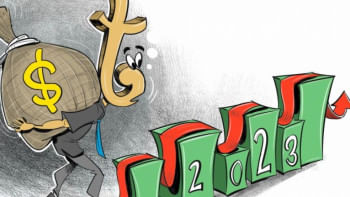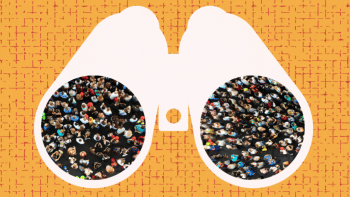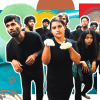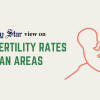Why is the truth so important?

Many of us are familiar with the work (or name, at least) of the Austrian neurologist and founder of psychoanalysis, Sigmund Freud. Perhaps not as many, however, are familiar with his nephew, Edward Bernays. Bernays is considered to be a pioneer in the field of public relations and propaganda – and was referred to in his obituary as "the father of public relations." During the 1940s, it was Bernays who had suggested that the US National Military Establishment be renamed to the Department of Defence, instead of the Department of War, so as to be "perceived" more positively by the masses.
In his short but brilliant book, Propaganda, Bernays openly wrote: "The conscious and intelligent manipulation of the organised habits and opinions of the masses is an important element in democratic society. Those who manipulate this unseen mechanism of society constitute an invisible government which is the true ruling power." But this, perhaps, was not as much of a revolutionary observation as one might think.
In his monumental work The Republic, Plato, as part of his famous "allegory of the cave," describes a scenario where people are held captive in a cave since birth, with their backs to the entrance, unable to face the opening, and with no knowledge of the outside world. Occasionally, however, people and other objects would pass by the cave entrance, casting shadows and echoes on the wall they faced; hence, the prisoners would falsely believe the sounds to be coming from the shadows. Suddenly, one prisoner is freed and is able to go outside for the first time. The sunlight, which he sees directly, initially hurts his eyes and he finds the new environment disorienting; when told the things around him are real, while the shadows were mere reflections, he cannot believe it. Gradually, his eyes adjust and he is able to look upon the sun itself and reason how the shadows he saw were cast by the light. Upon returning to the cave to share his discovery with his fellow captives, the prisoner (whose eyes had now adjusted to the light), was blinded by the darkness inside the cave, just as he was the first time he saw the light. The other prisoners, however, came to the conclusion that the journey had made him stupid and blind, and violently resisted his attempts to free them.
Plato uses this passage as an analogy to explain that most people are not only comfortable in their ignorance, but are also hostile to anyone who points it out. To put it in the words of Mark Twain, "It is easier to fool people than to convince them that they have been fooled."
With scientific progress and the advent of advanced technology, the methods of population control, particularly through the use of information control, emotional manipulation, and mass surveillance have become predominant.
Of course, the creation of an all-powerful dystopia via perception control and mass surveillance – and the use of sheer force – was most chillingly described by George Orwell in his book 1984. Orwell's French tutor and fellow Eton College alumni, Aldous Huxley strongly believed that humanity will go through "one final revolution" as a result of scientific and technological breakthroughs, giving ruling elites much greater power to control populations and their behaviour, leading to the creation of such a dystopia – which he wrote about in his book Brave New World. Huxley, however, believed that the methods used would be different from what Orwell had described.
In a letter to Orwell, Huxley wrote: "My own belief is that the ruling oligarchy will find less arduous and wasteful ways of governing and of satisfying its lust for power… Within the next generation I believe that the world's rulers will discover that infant conditioning and narco-hypnosis are more efficient, as instruments of government, than clubs and prisons, and that the lust for power can be just as completely satisfied by suggesting people into loving their servitude as by flogging and kicking them into obedience."
The range of subject matters politically acceptable to be discussed by the so-called mainstream population – the Overton Window – has shrunk immensely, yet it is a relatively widely-held belief today that the number of taboo subjects that cannot be discussed has reduced (a classic example of Orwell's doublethink).
Despite the differences in their books, both authors discussed in great detail the importance of perception control, which is necessary if a small group of oligarchical rulers are to control the behavioural patterns of entire populations – or those of a large majority, at least. That doing so is more than possible in the modern world can be clearly seen in Noam Chomsky's documentary Manufacturing Consent. In Chomsky's words: "The smart way to keep people passive and obedient is to strictly limit the spectrum of acceptable opinion, but allow very lively debate within that spectrum."
Hence, today, we see increasing amounts of "social debates" (whether in the media, in movies, etc), but centring the same subjects, while discussing others is sure to get you cancelled (as Chomsky has been done by the Western mainstream), if not worse. In other words, the range of subject matters politically acceptable to be discussed by the so-called mainstream population – the Overton Window – has shrunk immensely, yet it is a relatively widely-held belief today that the number of taboo subjects that cannot be discussed has reduced (a classic example of Orwell's doublethink).
One of the strangest phenomena of this is the celebration of getting opinions and ideas from a seemingly diverse group of people (in terms of gender, race, looks, etc), which is fantastic – but only if aligned with the same agendas pushed by the mainstream (that is, tolerance in terms of diversity of opinions/ideas is deteriorating). The wisdom behind Voltaire's understanding that, "The right to free speech is more important than the content of the speech," is being forgotten today even by some who claim to defend that right.
Another interesting outcome is the increased discussion of people's private lives in the mainstream and the decay of individual privacy. If information is power, the decrease in individual privacy can only render individuals less powerful, particularly in relation to the state, its actors, and its institutions, whose functioning has become increasingly opaque – especially under the pretext of protecting "national security." Yet, the "overwhelming majority of information" classified in relation to the functioning of the state, according to Julian Assange – who has perhaps looked at more classified information than any human ever – is "to protect political security, not national security." In other words, for the ruling technocrats to maintain their power. And yet, the rapidly growing tendency of classifying information, let alone its contents, is barely discussed by the same mainstream.
The major decisions that are taken by the biggest and most influential state and non-state actors, which affect global shifts, are being pushed to the fringes. And what we are left with are trivial discussions – debates between ideologues whose ideological roots are based on false realities, as we have less and less information publicly available about how the power machinery/hierarchy truly functions, and what decisions are taken by the ruling class behind closed doors.
The result, according to Assange, is that: "The world is not sliding, but galloping into a new transnational dystopia," which is a "development that has not been properly recognised outside of national security circles" and has instead "been hidden by secrecy, complexity and scale."
If what advances us as a civilisation is the entirety of our understanding, then our understanding of how human institutions actually function has to be expanded. And, at the moment, we are severely lacking in such information from big, secretive organisations that play a massive role in shaping how we all live.
Additionally, we must be open to allowing the constant questioning of whatever views we hold – including the questioning of why we believe what we believe. Because, the ultimate tool that can progress humanity and ensure that human decision-making is free, is the truth. Not my truth, nor yours, but the truth about reality and how the world really works. And if we are to arrive at that, we mustn't be afraid to allow what we "perceive" as truth to be questioned by those who view the world differently.
To find the truth, we must also be willing to examine as much information as possible, not only information that comes filtered through any gatekeepers – whose perceptions are just as vulnerable to corruption as ours are, and who can just as easily misinterpret and misrepresent information as we could.
Eresh Omar Jamal is assistant editor at The Daily Star. His Twitter handle is: @EreshOmarJamal

 For all latest news, follow The Daily Star's Google News channel.
For all latest news, follow The Daily Star's Google News channel. 









Comments